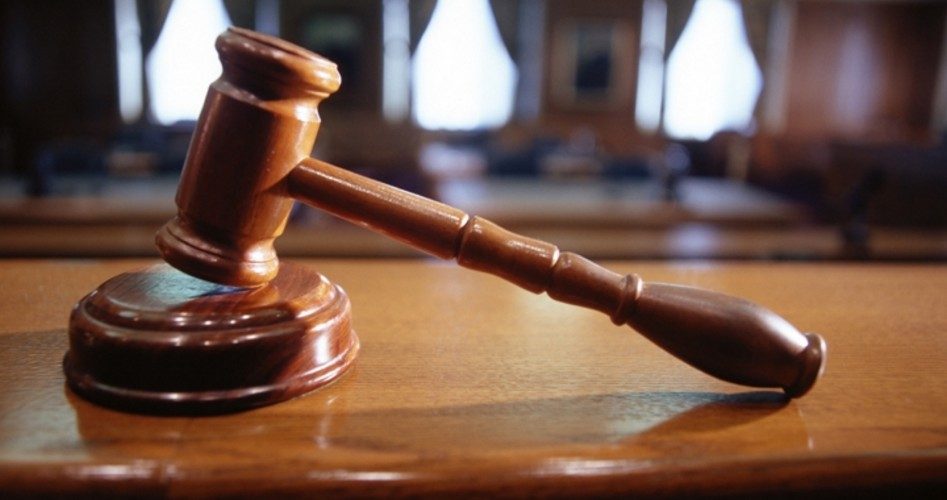
The U.S. Court of Appeals for the District of Columbia’s decision last Thursday on whether to allow the full court, en banc, to rehear its two previous rulings against Washington, D.C.’s onerous concealed-carry restrictions was short and to the point: “Upon consideration of the petitions of the District of Columbia … for rehearing en banc … it is … ordered that the petitions be denied.”
Anti-gun politicians on the city’s 13-member council have tried for years to keep its citizens disarmed, in violation of the Second Amendment’s guarantees, and they continue to strike out. First, they lost to Alan Gura, the lead attorney in District of Columbia v. Heller decided by the Supreme Court in 2008, which declared that the Second Amendment guaranteed the individual right to keep and bear arms.
They ran into Gura again in 2010 when he led the Supreme Court to its decision that applied the Second Amendment to the states through incorporation of the 14th Amendment.
Each time (with one exception) the council tried to restrict D.C.’s citizens from obtaining a concealed-carry permit, the city was sued and lost. When Brian Wrenn applied for a concealed-carry permit, his application was denied because he failed show “good reason” or “proper reason” to obtain one. Once again, Alan Gura leapt into the fray and on July 25, a three-judge panel of the Court of Appeals declared those requirements too restrictive. In its decision the court said, “We are bound to leave the District as much space to regulate as the Constitution allows — but no more … [our] resulting decision rests on a rule … that the law-abiding citizen’s right to bear common arms must enable the typical citizen to carry a gun. [Therefore] we enter permanent injunctions against the District’s ‘good-reason’ law.”
The District appealed to the full court for a rehearing, and its request was denied.
Chris Cox, executive director of the National Rifle Association’s Institute for Legislative Action (NRAILA), was jubilant: “We applaud the D.C. Circuit Court of Appeals for reaffirming the rights of ordinary, law-abiding citizens to carry firearms to protect themselves and their families in the District of Columbia. The District’s draconian restrictions on core Second-Amendment rights are out of step with the mainstream protections in the rest of the country, and as the D.C. Circuit’s opinion shows, they are equally out of step with our Nation’s traditions and fundamental law.”
Well, not quite. The U.S. Court of Appeals for the 2nd Circuit upheld New York’s requirement that people applying for a concealed-carry permit must show “proper cause,” while the 3rd Circuit’s Court of Appeals upheld New Jersey’s law requiring an applicant to show a “justifiable need.” The Appeals Court for the 4th Circuit upheld Maryland’s requirement that an applicant show “good and substantial reason” for a permit. The 9th Circuit’s Court of Appeals upheld a California requirement that an applicant show “good cause” in order to receive a permit to carry concealed.
What all this means, in the continuing long war against guns and the Second Amendment, is that the pressure on the Supreme Court continues to build for it to rule, once and for all time, on whether the Second Amendment applies to private law-abiding citizens carrying outside of their homes.
Gura delighted in chastising the District’s anti-gun politicians over Thursday’s decision: “Ten years ago, Washington, D.C.’s political leadership tried to extinguish Second Amendment rights before the Supreme Court. The result was D.C. v. Heller, a tremendous victory for the rights of all Americans. With the court of appeals again confirming the people’s right to bear arms, Washington, D.C.’s politicians must once again ask themselves whether it makes sense to keep resisting our fundamental rights.”
Gura tweeted: “D.C. Circuit denies en banc petition in Wrenn v. D.C.! On to #SCOTUS?” It’s fairly certain that those anti-gun politicians on the District’s council will appeal to the Supreme Court. What’s less certain is whether this will be the case the high court will review to resolve the issue once and for all.
An Ivy League graduate and former investment advisor, Bob is a regular contributor to The New American magazine and blogs frequently at LightFromTheRight.com, primarily on economics and politics. He can be reached at [email protected].



